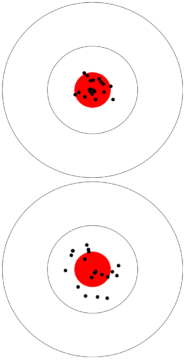by Jochen Szangolies

The world is a noisy place. No, I don’t mean the racket the neighbor’s kids are making in the back yard. Rather, I mean that, whatever you encounter in the world, probably isn’t exactly what’s actually there.
Let me explain. Suppose you’re fixing yourself a nice cocktail to enjoy on the porch in the sun (if those kids ever quiet down, that is). The recipe calls for 50 ml of vodka. You’re probably not going to measure out the exact amount drop by drop with a volumetric pipette; rather, maybe you use a measuring cup, or if you’ve got some experience (or this isn’t your first), you might just eyeball it.
But this will introduce unavoidable variations: you might pour a dash too much, or too little. Each such variation means that this particular Moscow Mule differs from the one before, and the one after—each is a slight variation on the ‘Moscow Mule’-theme. Recognizably the same, yet slightly different.
This difference is what is meant by ‘noise’: statistical variations in the measured value of a quantity due to inescapable limits to precision. For most everyday cases, noise matters comparatively little; but if you overshoot too much, your Mule might pack more kick than intended, and either just taste worse, or even make you yell at those pesky kids for harshing your mellow.
Thus, noise can have real-world consequences. Moreover, virtually everything is noisy: not just simple estimations of measurable quantities, like volumes, sizes, or time spans, but also less easily quantifiable items, like decisions or judgments. The latter is the topic of Noise: A Flaw in Human Judgment, the new book by economy Nobel laureate Daniel Kahnemann, together with legal scholar Cass Sunstein and strategy expert Olivier Sibony. The book contains many striking examples of how noisy judgment leads to wide variance in fields like criminal sentencing, college admissions, or job recruitment. Thus, whether you get the job or go to jail might come down to little more than random variation, in extreme cases.
But noise has another effect that, I want to argue, can shed some light on why so many people seem to hold weird beliefs: it can make the correct explanation seem ill-suited to the evidence, and thus, favor an incorrect one that appears to fit better. Let’s look at a simple example. Read more »
